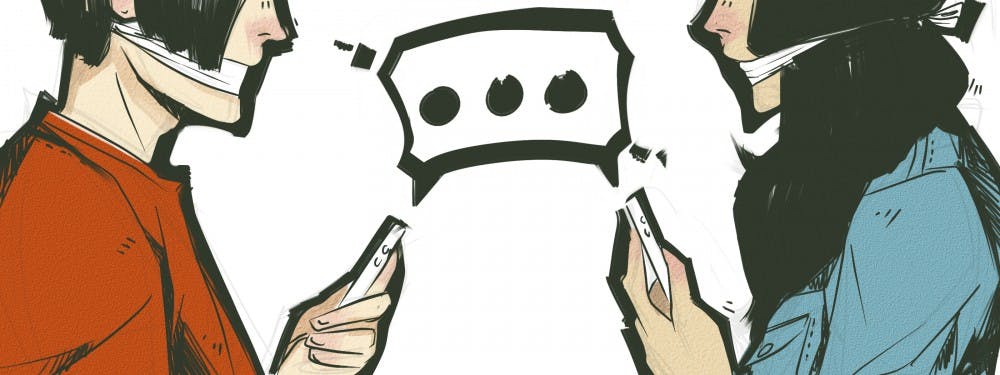A widely contested and heinously problematic public security law went into effect in Spain on July 1, inciting public uproar and numerous protests — all for good reason.
New restrictions of what critics are calling the “gag law” include, but are not limited to: the prohibition of “unauthorized protest,” disruption of public events, the use of social media to call on others to protest and the photographing and disrespecting of police. All of which result in hefty fines if committed.
Other alarming and vaguely worded portions of the law target habitual access to websites allegedly promoting terrorism.
While proponents of the gag law say it will reinforce civil ?liberties, we of the Editorial Board believe it imposes not only a direct threat to the right to freedom of expression, but also silences potential dissent by taking away the public’s right to gather — even peacefully.
Spain believes it is taking a precautionary — yet extremely dangerous — measure. However, this measure is anything but secure. In fact, it perfectly highlights its government’s insecurities about the capabilities of its people to come together and demand change.
As technology continues to grow at lightning speed, younger generations are using it as a platform to express their beliefs, experiences and ideas. When citizens rally together behind an idea, they become a direct agent for change — something the Spanish government is clearly aiming to stop.
While we proud Americans needn’t ever worry about such restrictive legislation ever whittling its way through Congress, let us think about what life would be like if the United States or, better yet, IU adopted such a restrictive gag law.
First, your right to protest would disappear and any dissenting voices would be silenced before they could ever be heard.
Peaceful marches like the annual Bloomington SlutWalk would be nonexistent, and the platform for open discussion about slut-shaming and victim-blaming would crumble.
IU’s law enforcement and those who control IU Secure could block “terrorist” sites at their discretion, giving it the power to control and limit our access to information.
Moreover, citizens would be prohibited from recording police even as they see potential offenses occur.
Elsewhere in our country, the tragic death of Eric Garner would never have been recorded.
Garner’s dying words, “I can’t breathe,” would never have become a slogan for the nationwide protests against the killing of unarmed African Americans that challenged our shamefully flawed system and ignited the long-overdue push for equality.
Americans must be wary not to take for granted our freedom of expression, a freedom which does not exist in many parts of the world.
The stifling of free speech is the stifling of the growth of a nation. Without public platforms, from social media to the front of Sample Gates, there is no way to hold governments accountable for its actions or to denounce potential abuses when they ?occur.
Our younger generations are the world’s protesters. And they are vital when it comes to starting movements, rallying behind these movements and demanding change.
And no government in the world should ever be allowed to take that away.




